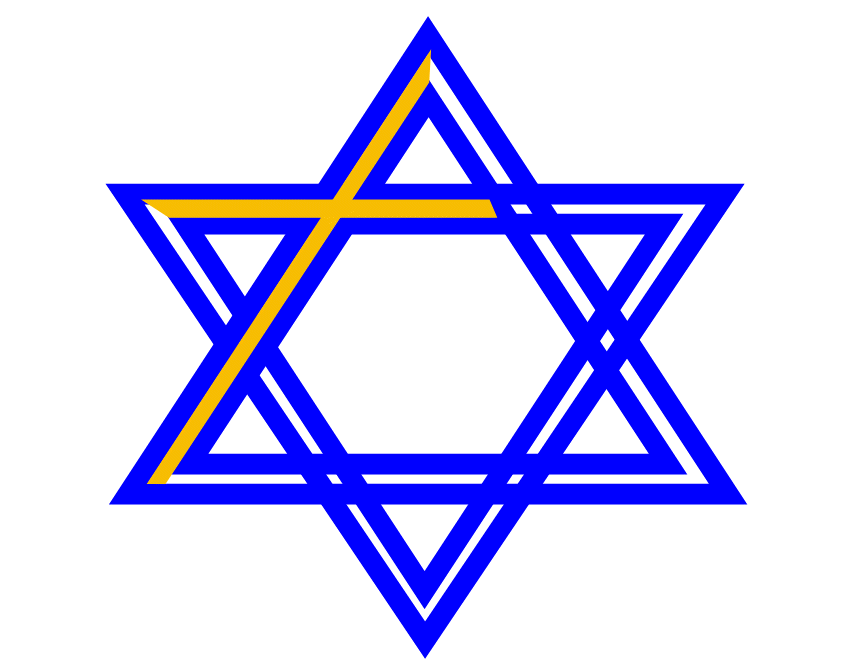 |
Hebrew Root The Root of Our Faith |
|
|
What's New? Who We Are
Teaching Articles (new) Blog (reguarly updated) Podcast (link) (new) Bookstore (link) (new)
Other Resources
___________________ |
2 Co. 3 - The Law is a Ministration of Death Which Has Been Done Away Withby Michael Bugg Updated 3/25/08
Not that we are adequate in ourselves to consider anything as coming from ourselves, but our adequacy is from God, who also made us adequate as servants of a new covenant, not of the letter but of the Spirit; for the letter kills, but the Spirit gives life. But if the ministry of death, in letters engraved on stones, came with glory, so that the sons of Israel could not look intently at the face of Moses because of the glory of his face, fading as it was, how will the ministry of the Spirit fail to be even more with glory?
For if the ministry of condemnation has glory, much more does the ministry of righteousness abound in glory. For indeed what had glory, in this case has no glory because of the glory that surpasses it. For if that which fades away was with glory, much more that which remains is in glory.
Therefore having such a hope, we use great boldness in our speech, and are not like Moses, who used to put a veil over his face so that the sons of Israel would not look intently at the end of what was fading away. But their minds were hardened; for until this very day at the reading of the old covenant the same veil remains unlifted, because it is removed in Christ. But to this day whenever Moses is read, a veil lies over their heart; but whenever a person turns to the Lord, the veil is taken away.
Now the Lord is the Spirit, and where the Spirit of the Lord is, there is liberty. But we all, with unveiled face, beholding as in a mirror the glory of the Lord, are being transformed into the same image from glory to glory, just as from the Lord, the Spirit. (vv. 5-18, NASB) The key phrase in the above passage is “that which fades away.” The standard argument is that Paul was referring to the Torah fading away; this is often connected with Hebrews 8:13. However, this would contradict numerous other passages, and misunderstands the antecedent: Not the Torah per se, but the “ministry of death.” The Sermon on the Mount, by virtue of its perfect instruction, brings about this ministration of death when we sin against it—the letter, the written command that we fail against, kills. Indeed, even the single command not to eat of a certain tree brought a ministration of death. Would those that say we should not keep the Torah also argue that we should not keep the Sermon on the Mount? But the Spirit, who writes the Torah in our hearts and gives us the power to walk in obedience to God (Jer. 31:33, cf. Ezk. 36:27), gives us life—not by releasing us from the Torah, but by making it a part of us after all of our sins have been forgiven in the Sacrifice of the Living Torah, the Messiah Yeshua. To put it another way, trying to keep the Torah "in the letter," legalistically, we will be condemned because we simply cannot keep the Torah in our flesh (Rom. 7:14ff); it must be kept by the power of the Spirit--and even then, without the Messiah's blood covering our sin (because we in our flesh still fall short), we would still be condemned. Some may object that the reference to that which is done away with being “glorious” means that it must refer to the Torah, for what could be glorious about condemnation and death? In answer, it must be pointed out that God’s judgment of sin too is a reflection of His Glory, His perfect judgment and righteousness. However, the greater glory is reflected not in His power to judge, condemn, and destroy, but in His power to show mercy, redeem, and heal. What then is the veil that Paul speaks of? The veil over Moses’ face obscured the Glory of God in him because the people were not ready to see that glory, but it did not prevent them from receiving and following God’s commandments. In like fashion, most of the Jewish people at present are blinded from seeing the full Glory of God in the Messiah and His redemption of the Gentiles as well as the Jews even though they could still read and observe the Torah (albeit imperfectly). But when one repents and turns towards the Lord, one sees His full Glory, His perfect work of redemption in history and in the Messiah. Sadly, most Christians read the Torah with a similar veil over their eyes today. After all, if it’s been done away with, why bother to study it and find Yeshua HaMashiach within it? Shalom! |
Want
to help Restore the Hebrew Root? All donations are Tax deductible
|
|
|